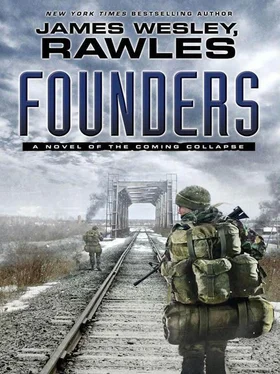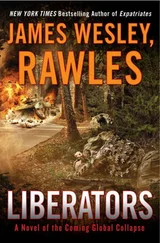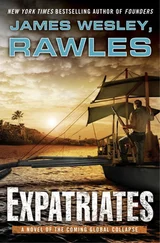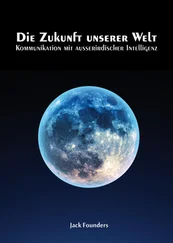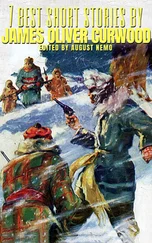James Rawles - Founders
Здесь есть возможность читать онлайн «James Rawles - Founders» весь текст электронной книги совершенно бесплатно (целиком полную версию без сокращений). В некоторых случаях можно слушать аудио, скачать через торрент в формате fb2 и присутствует краткое содержание. Город: New York, Год выпуска: 2012, ISBN: 2012, Издательство: Emily Bestler Books, Жанр: sf_postapocalyptic, на английском языке. Описание произведения, (предисловие) а так же отзывы посетителей доступны на портале библиотеки ЛибКат.
- Название:Founders
- Автор:
- Издательство:Emily Bestler Books
- Жанр:
- Год:2012
- Город:New York
- ISBN:978-1-4391-7282-7
- Рейтинг книги:5 / 5. Голосов: 1
-
Избранное:Добавить в избранное
- Отзывы:
-
Ваша оценка:
- 100
- 1
- 2
- 3
- 4
- 5
Founders: краткое содержание, описание и аннотация
Предлагаем к чтению аннотацию, описание, краткое содержание или предисловие (зависит от того, что написал сам автор книги «Founders»). Если вы не нашли необходимую информацию о книге — напишите в комментариях, мы постараемся отыскать её.
Founders — читать онлайн бесплатно полную книгу (весь текст) целиком
Ниже представлен текст книги, разбитый по страницам. Система сохранения места последней прочитанной страницы, позволяет с удобством читать онлайн бесплатно книгу «Founders», без необходимости каждый раз заново искать на чём Вы остановились. Поставьте закладку, и сможете в любой момент перейти на страницу, на которой закончили чтение.
Интервал:
Закладка:
Cliff nodded, accepting the gift, and said, “Don’t mention it.”
Ken and Terry shouldered their packs. Cliff started the pickup’s engine and shouted, “Thanks for the ammunition, pardner!” He gave a wave, and drove away.
“What a lunatic,” Ken said with a laugh.
“Well. Let’s thank God for the kindness of the lunatics in our lives,” Terry said.
19. A Bump in the Road
“He doubted whether they could survive the winter, even though they piled broken furniture into the fireplace. Some accident would quite likely overtake them, or pneumonia might strike them down. They were like the highly bred spaniels and pekinese who at the end of their leashes had once walked along the city streets. Milt and Ann, too, were city-dwellers, and when the city died, they would hardly survive without it. They would pay the penalty which in the history of the world, he knew, had always been inflicted upon organisms which specialized too highly.”
George R. Stewart, Earth Abides (1949)North of Coalville, Utah
April, the Third Year
Again on foot, Ken and Terry walked on the rough service road paralleling the railroad and highway. They walked two miles before making camp for the night. Nearby, the Weber River roared in a spring torrent. Ken had developed a hot spot on his left foot.
After they had set up their camp, he pulled off his boots and socks. A blister had formed on the projection at the widest part of his left foot, near the head of his right-most metatarsal bone.
As he powdered his feet, Ken told Terry, “These new boots haven’t been broken in well enough. I think that we’re going to have to take it easy and only do a couple of miles each day for the next couple of days.”
He decided that the left boot needed stretching to improve its fit. So he spent ten minutes walking around barefoot, looking around the campsite at various small rocks. He eventually found a lozenge-shaped rock that was just slightly wider than his foot. He carefully inserted the rock into his boot, wedging it in, just where he thought the boot was too tight. As an afterthought, he wet that part of the boot leather to help it stretch.
They awoke before dawn. Ken applied moleskin to the blister on his foot. As they rolled their sleeping bags and packed their gear, he consulted their Utah road map. A tiny dot on the map ahead on their route was marked “Henefer.” Just after sunrise, they skirted around the small town of Henefer, following Echo Road. The town appeared to have just a few hundred residents. Two dogs barked at the Laytons, but otherwise they attracted no interest. Their progress was slow, both because of their stealth and because of Ken’s blister. They camped up a side canyon, two miles from Morgan City. The canyon was steep, so it took them an extra half hour to set up camp, arranging rocks to make level spots for their sleeping bags. A seasonal creek trickled down the draw. Ken muttered as he pulled off his left boot. The blister was larger and starting to redden.
The next day they decided to hunker down, in deference to Ken’s blister. It was a pleasant spring day, and they had fresh water close at hand. There were a few spring wildflowers dotting the hillsides. They took turns napping and nibbled at dried fruit and jerky. In the afternoon, they watched Blue Bellies—western fence lizards—dart around the rocks. Terry thumbed through her well-worn Missal, saying, “Well, there are worse ways to spend a day.”
Ken roused her at 4 a.m. the next morning. By the light of Terry’s tiny LED light, they could see that Ken’s blister hadn’t improved, and that it now extended beyond the moleskin. So he applied a larger piece of the protective covering, hoping for some improvement.
They buried their trash beneath some rocks and erased the signs of their camp. They were back on the trail by 4:30 a.m. Their progress was slow and agonizing. Ken winced each time his left foot hit the ground. In six hours, they advanced only one and a half miles.
They set up camp in the afternoon in the tall grass of what had been the Round Valley Golf Course. In the distance, they could see that the west end of the golf course had been fenced, and now contained a flock of horned sheep. Terry took the first watch while Ken tried to sleep. The blister was very painful and looking even more red.
The next morning, Ken declared, “I think it is infected.”
He put on a clean sock and then painfully put on his boot.
“We need to find a place to stay and let that heal,” Terry suggested.
“Maybe we can do some more security work. Let’s head for a farm that reeks of prosperity,” he answered.
They made slow progress toward Morgan City. Ken was in agony. The verdant fields of the valley floor contrasted the brushy and sparsely wooded hillsides above them. Most of the fields appeared to be hay grass, but there were also some row crops. They were surprised to see and hear tractors operating.
Spotting a tall, gleaming grain silo north of town, they headed for it. The silo was at a tidy farm with several large fields. A sign at the county road proclaimed, “L. & L. Prine Farm, Hay Sales By Appointment Only,” with an 801 phone number. The stylized outline of a beehive was painted beneath the phone number. Ken knew that this symbol indicated that the family was associated with the LDS Church.
Down the lane, on the porch of the farmhouse a dog barked, already aware of their presence. They walked slowly with their rifles slung muzzles down. Another dog joined in on the barking. A teenage girl stepped out onto the porch, armed with a lever-action carbine. Another girl, slightly younger, soon joined her armed with a Mossberg .22 rifle. The front door opened again, and a portly man stepped out, carrying both a scoped rifle and a holstered revolver. “We don’t want any trouble,” the man warned.
“We’re not trouble,” Terry said. “We’re the antidote to trouble.” She and Ken made a show of laying down their rifles, packs, and web gear.
Larry Prine interrogated the Laytons for twenty-five minutes. While they spoke, Larry’s wife, Lynda, and more and more of their family emerged from the house. Soon, six children ranging from five to sixteen were lined up, listening intently. Larry was curious, and seemed to take pity on the Laytons. He read the letters of introduction from Durward Perkins and Carl Norwood.
After their interrogation, Terry asked, “How are things here in Morgan City?”
Prine leaned back against the wall casually and replied, “We’ve gotten by a lot better than most towns, since we have irrigation water from the river. We’ve prospered, but we’ve been shorthanded. When those derivatives imploded and the dollar collapsed, the town Elders panicked and got a little overzealous. They sent home every student enrolled at Weber State, and they ran all the migrant farm workers out of town. They did the same to the druggies and drunks at the halfway house. At least that move made sense. But as it turned out, we could have used the help from the college kids for the next summer’s harvest, and for security, too. If they hadn’t been in such a rush, they could have taken their pick of the students from the college. For instance, they could have kept all the ROTC cadets and criminal justice majors, and some of the ag students. That was very shortsighted of them. But like I say, everyone was very panicky when the hyperinflation kicked in and the riots started in the big cities.”
“So how have things been recently?”
Prine scratched his chin and said, “The last few months, things have been getting dicey, with the looter gangs that have come up from Nevada and west from the Plains states. Some of ’em have armored vehicles—mostly old bank armored cars. I heard that St. George and Vernal both nearly got destroyed. More than half the houses in both those towns burned down. And in Richfield there was a gang that moved in and stayed for months , just brutalizing everyone in town. Then that same gang moved on to Price, and did the same thing, and they’re still there. Hopefully the new government in Kentucky will send the Army to come and clean them out.”
Читать дальшеИнтервал:
Закладка:
Похожие книги на «Founders»
Представляем Вашему вниманию похожие книги на «Founders» списком для выбора. Мы отобрали схожую по названию и смыслу литературу в надежде предоставить читателям больше вариантов отыскать новые, интересные, ещё непрочитанные произведения.
Обсуждение, отзывы о книге «Founders» и просто собственные мнения читателей. Оставьте ваши комментарии, напишите, что Вы думаете о произведении, его смысле или главных героях. Укажите что конкретно понравилось, а что нет, и почему Вы так считаете.
